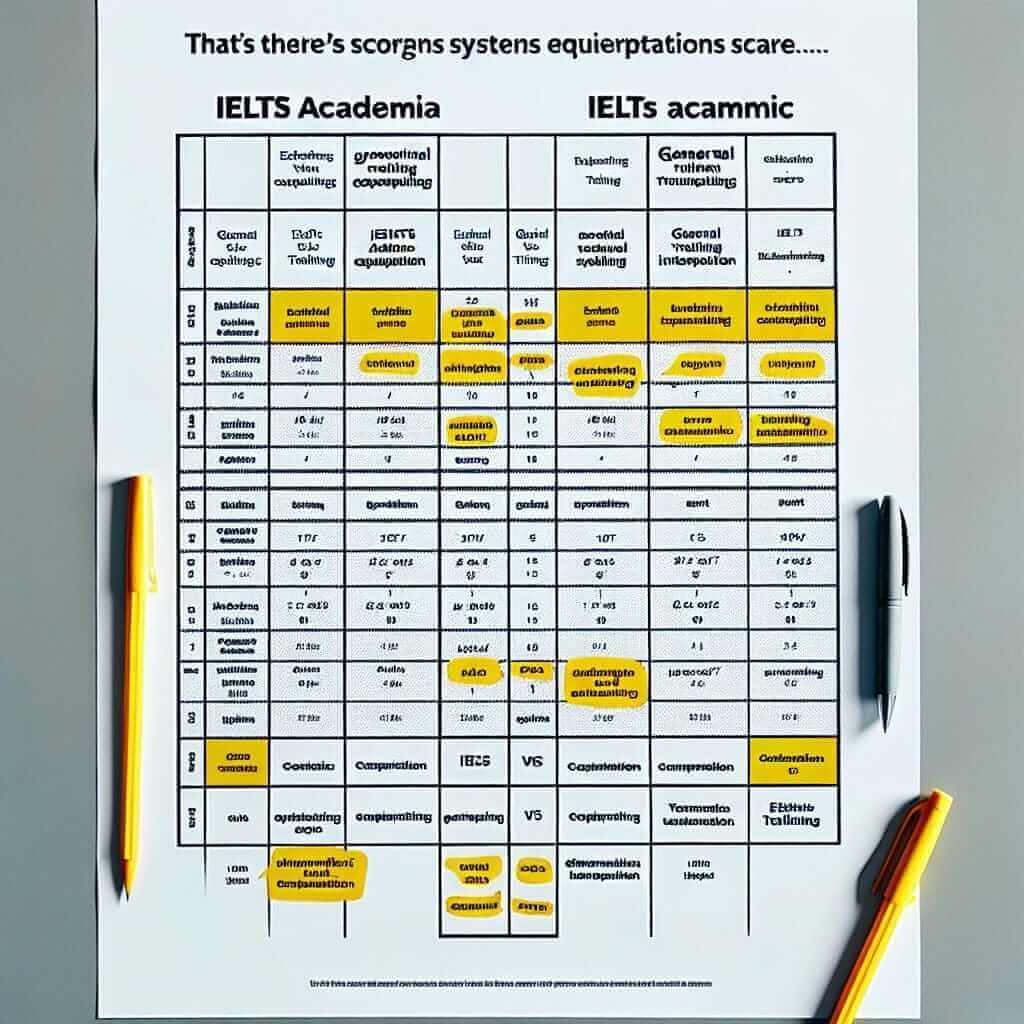For those embarking on the IELTS journey, a common question arises: “Which is easier – IELTS General or Academic?” As an IELTS instructor with over 20 years of experience, I’ve encountered this query countless times. The truth is, there’s no one-size-fits-all answer. The best choice depends on your individual goals and language proficiency. Let’s delve deeper to help you make the right decision.
Understanding the Differences
Before comparing difficulty levels, it’s crucial to grasp the distinct purposes and formats of each test:
IELTS Academic
- Purpose: Designed for individuals aiming to pursue higher education (undergraduate or postgraduate) in an English-speaking country.
- Content Focus: Academic reading and writing tasks, often featuring complex vocabulary and concepts related to various academic disciplines.
IELTS General Training
- Purpose: Intended for those planning to migrate to an English-speaking country (e.g., Australia, Canada, New Zealand, UK) or seeking work experience or training programs.
- Content Focus: Everyday English skills required for social interaction, workplace communication, and understanding general information.
Is One Truly “Easier”?
While it’s tempting to label one test as “easier,” it’s more accurate to say they present different challenges:
IELTS Academic: The Demand for Academic Proficiency
- Vocabulary: Requires a wider range of vocabulary, including academic and technical terms.
- Reading: Passages can be more complex, drawn from academic journals, textbooks, or research articles.
- Writing: Demands analytical and discursive writing styles, often requiring data interpretation or essay writing on abstract topics.
Example: An Academic Writing Task 1 might involve describing a complex graph or chart, while Task 2 could ask you to discuss the advantages and disadvantages of globalization.
IELTS General Training: The Focus on Practical Communication
- Vocabulary: Emphasizes vocabulary used in everyday conversations, workplace scenarios, and general reading materials.
- Reading: Texts are generally more accessible, sourced from newspapers, magazines, advertisements, or workplace documents.
- Writing: Focuses on practical writing tasks like letters (formal, semi-formal, informal), describing events, or expressing opinions.
Example: A General Training Writing Task 1 might involve writing a letter to a landlord requesting a repair, while Task 2 could be an essay about the importance of learning a foreign language.

Factors to Consider When Choosing
- Your Goal: This is paramount. If it’s university admission, IELTS Academic is non-negotiable. For migration or work experience, IELTS General Training is usually preferred.
- Your English Proficiency: Be honest with yourself. If you struggle with academic language, even if your overall English is good, IELTS General Training might be less demanding.
- Your Test-Taking Skills: Both tests assess your ability to manage time, understand instructions, and apply strategic approaches to different question types.
Tips for Success – No Matter Your Choice
- Practice Makes Progress: Familiarize yourself with the test format, question types, and timing for each section. Utilize practice tests to identify your strengths and areas needing improvement.
- Build a Strong Foundation: Focus on expanding your vocabulary, grammar, and overall language comprehension. This applies to both tests, although the specific vocabulary focus may differ.
- Seek Expert Guidance: An experienced IELTS tutor can provide personalized feedback, address your weaknesses, and equip you with effective test-taking strategies tailored to your chosen test type.
Conclusion
Ultimately, the “easier” IELTS test is the one that aligns best with your purpose and current language abilities. By carefully evaluating your goals, being realistic about your strengths, and preparing strategically, you can approach your chosen IELTS test with confidence.